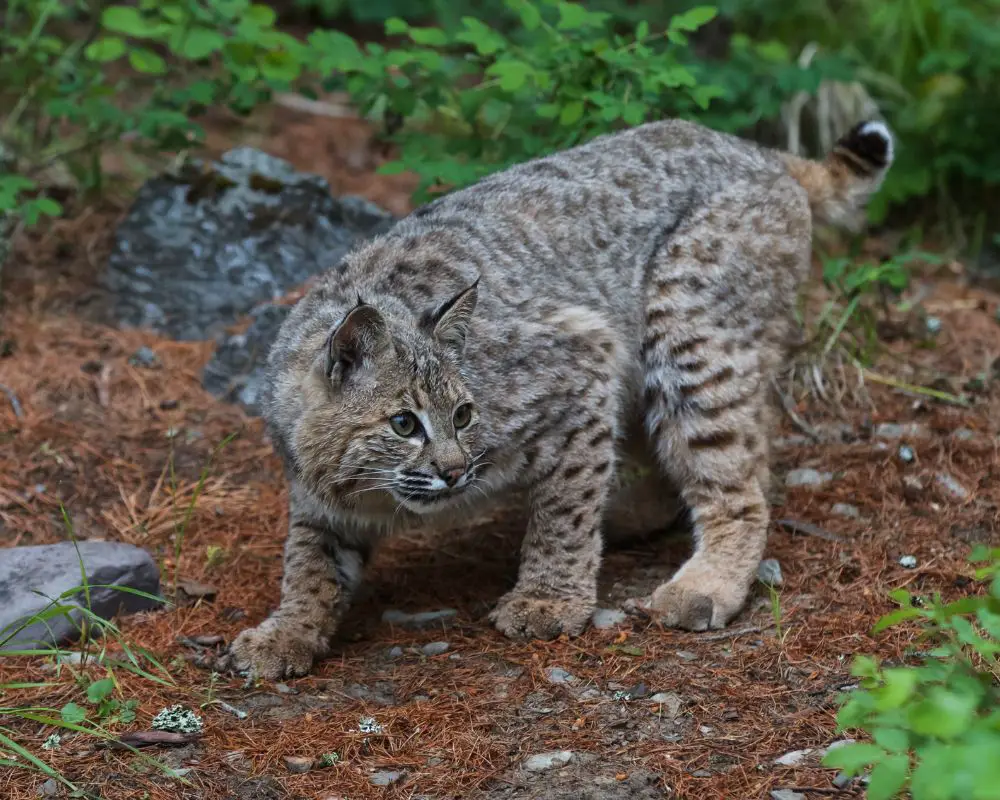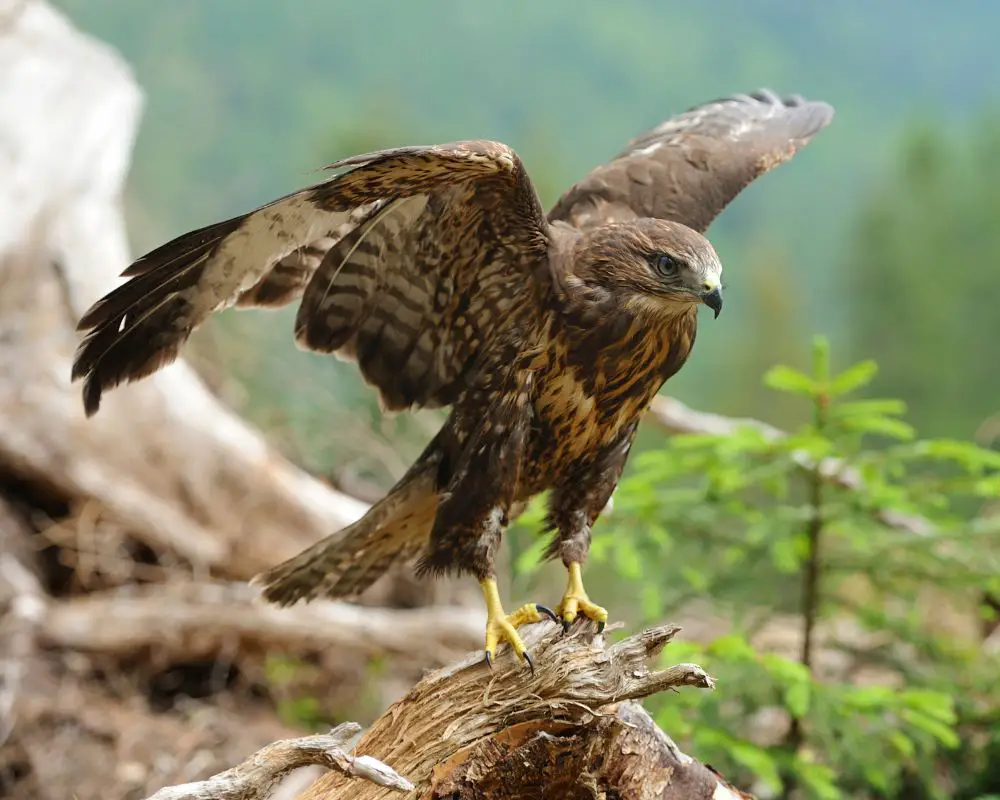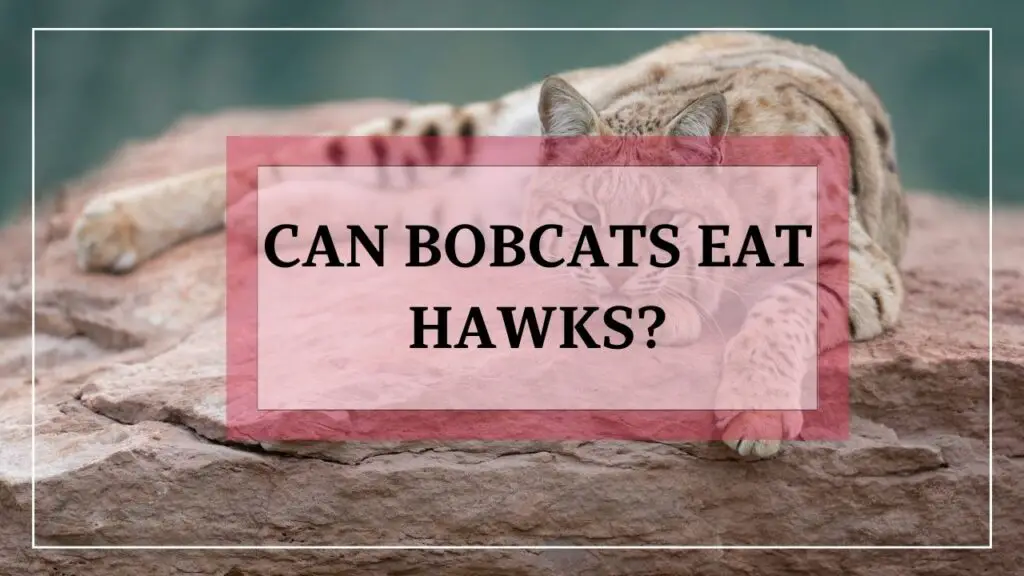Bobcats are fascinating creatures, known for their agility, stealth, and hunting skills. They are native to North America and are well adapted to a variety of habitats, from deserts to forests. Hawks, on the other hand, are birds of prey known for their sharp talons and beaks, powerful wings, and keen eyesight. With their contrasting physical characteristics, it’s natural to wonder whether bobcats can eat hawks.
Understanding what bobcats eat is important for several reasons. For one, it helps us to better appreciate the dietary habits of these animals and the adaptations they have developed to survive in the wild. Additionally, it can also shed light on the ecosystem and the delicate balance of predator and prey relationships.
In this blog post, we aim to answer the question of whether bobcats can eat hawks. We will examine the physical characteristics of both animals, the hunting and feeding habits of bobcats, and the reasons why bobcats may or may not eat hawks. By the end of this article, you should have a clearer understanding of this topic.
Bobcats are capable of killing and eating smaller birds, including some species of hawks, but they generally prefer to feed on smaller prey such as rabbits and rodents. The size and strength of a hawk can sometimes make it too difficult for a bobcat to successfully kill and consume it. The diet of a bobcat can vary greatly depending on its local environment and the availability of prey.
Keep reading for more details.
Can Bobcats Eat Hawks?


To understand the possibility of bobcats feeding on hawks, we need first to study both of them. This section of the blog post outlines the key physical characteristics of both bobcats and hawks and highlights their hunting and feeding habits. The size and strength of hawks make them formidable opponents for bobcats, and it is unlikely that bobcats would attempt to hunt them unless they were weak or sick.
Physical Characteristics Of Bobcats
1. Bobcats are carnivores, with sleek and muscular body that allows them to move quickly and quietly.
2. They have strong hind legs, sharp claws, and powerful jaws, making them effective hunters.
3. Bobcats typically weigh between 15 to 40 pounds and can grow up to two feet long, excluding the tail.[1]
Physical Characteristics Of Hawks
1. Hawks are birds of prey, characterized by their sharp talons and beaks, powerful wings, and keen eyesight.
2. They come in a range of sizes, with the largest species, such as the Harpy’s eagle, weighing up to 20 pounds.
3. Hawks are skilled hunters and feed on a variety of prey, including small mammals, reptiles, and other birds.
Bobcat’s Hunting And Feeding Habits
Bobcats are solitary hunters and feed on a variety of prey, including rabbits, squirrels, birds, and deer. They use their stealth and agility to stalk and ambush their prey, relying on their powerful jaws and sharp claws to take them down.
Bobcats are opportunistic feeders and will eat whatever is readily available, provided they can catch it.
Bobcat’s Ability To Hunt Hawks
Bobcats have the physical attributes necessary to take down smaller prey, such as rabbits and squirrels. However, hawks are larger and more powerful than these smaller prey, and their sharp talons and beaks make them capable of defending themselves.
While it is possible that a bobcat could take down a weakened or sick hawk, it is unlikely that it would be able to successfully hunt a healthy one.
Reasons Bobcats May Not Eat Hawks
Here are a couple of reasons why we think that bobcats can’t feed on hawks:
1. Size And Strength Of Hawks
As mentioned earlier, hawks can grow up to 20 pounds and have sharp talons and beaks that they use to defend themselves. Their strength and size make them a formidable opponent for bobcats, who typically prey on smaller animals.
2. Hawks’ Ability To Defend Themselves
Hawks are skilled hunters and have developed sharp talons and beaks as weapons to protect themselves from predators. They are also capable of flying, which provides an additional advantage in avoiding danger.
3. Bobcats’ Preference For Smaller Prey
Bobcats are opportunistic feeders and will eat whatever is readily available, provided they can catch it. However, they prefer to hunt smaller animals, such as rabbits and squirrels, rather than larger prey like hawks.
4. Rare Occurrence Of Bobcats Eating Hawks
While it is possible that a bobcat could take down a weakened or sick hawk, this is a rare occurrence and unlikely to happen often. Given their preference for smaller prey and the difficulty of hunting hawks, bobcats are more likely to hunt other animals than hawks.
FAQs
What Birds Do Bobcats Eat?
Bobcats are also known to eat birds. Bobcats have been observed preying on various species of birds including doves, quails, and even chickens in some instances.
Do Hawks Hunt Bobcats?
hawks can potentially hunt bobcats, especially if the bobcat is a juvenile or a small individual. However, adult bobcats are strong and agile predators that can defend themselves against most birds of prey, including hawks. In general, adult bobcats are not considered to be a major food source for hawks, and the majority of a hawk’s diet consists of small mammals, reptiles, and other birds.
Conclusion
In conclusion, bobcats and hawks are two unique animals with contrasting physical characteristics and hunting habits. While it is possible that a bobcat could take down a weakened or sick hawk, it is unlikely that it would successfully hunt a healthy one due to its size, strength, and ability to defend itself.
Additionally, bobcats prefer to hunt smaller animals like rabbits and squirrels, rather than larger prey like hawks. The occurrence of bobcats eating hawks is therefore rare. It is important to understand the dietary habits and predator-prey relationships in order to appreciate the delicate balance of the ecosystem.

